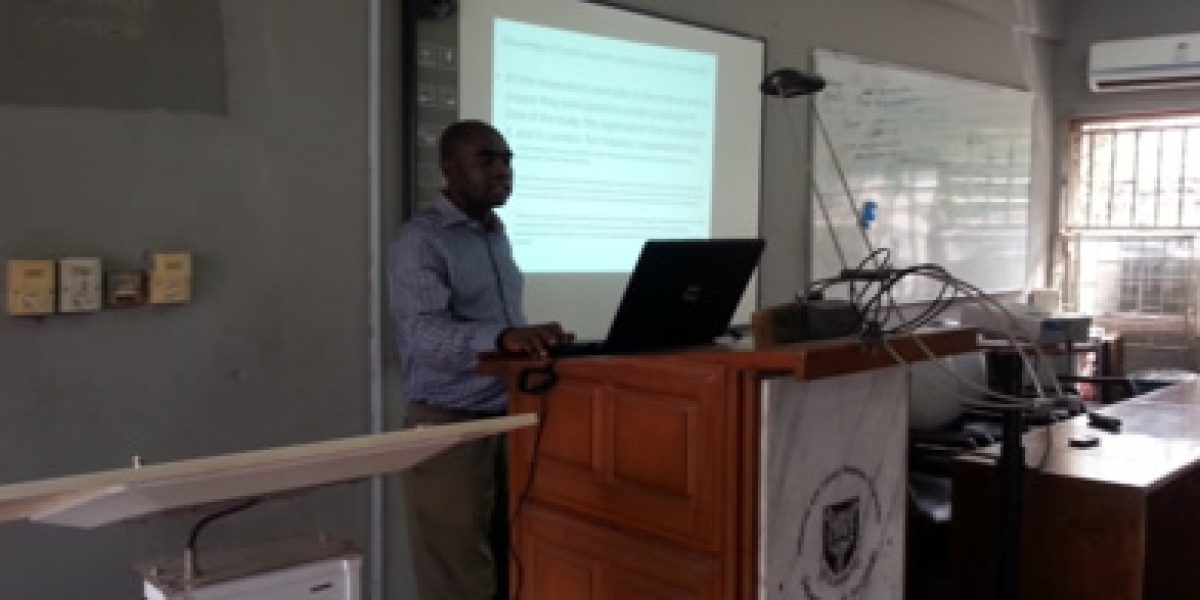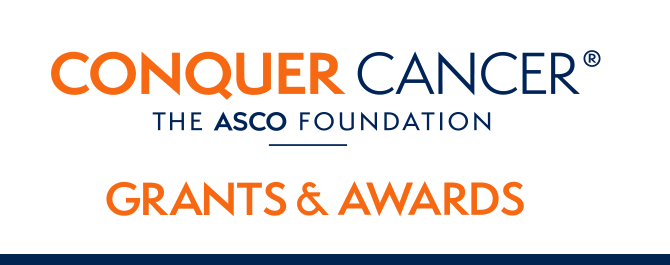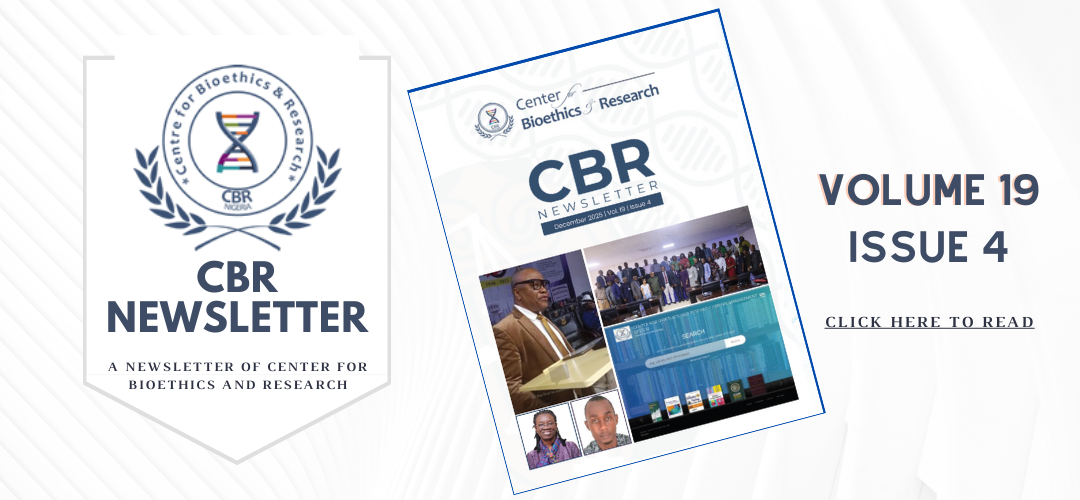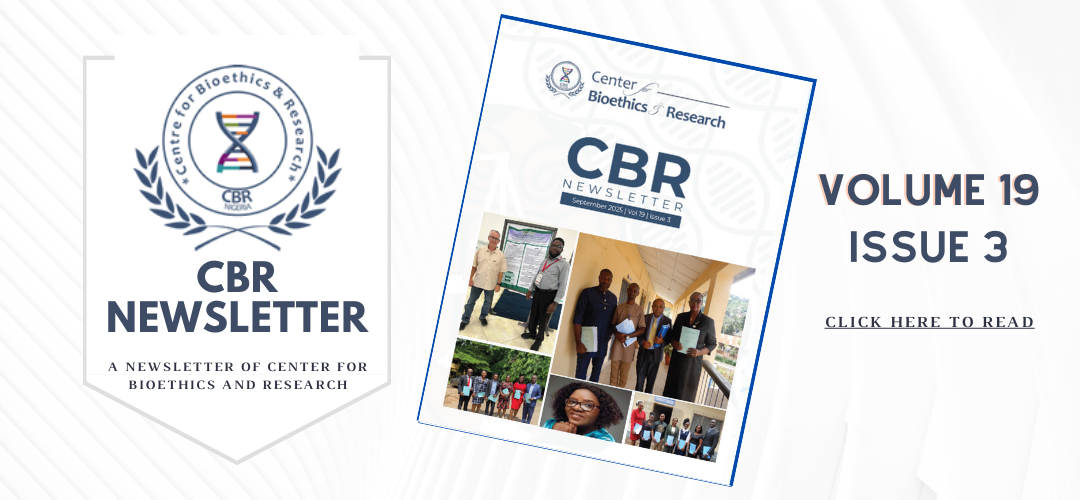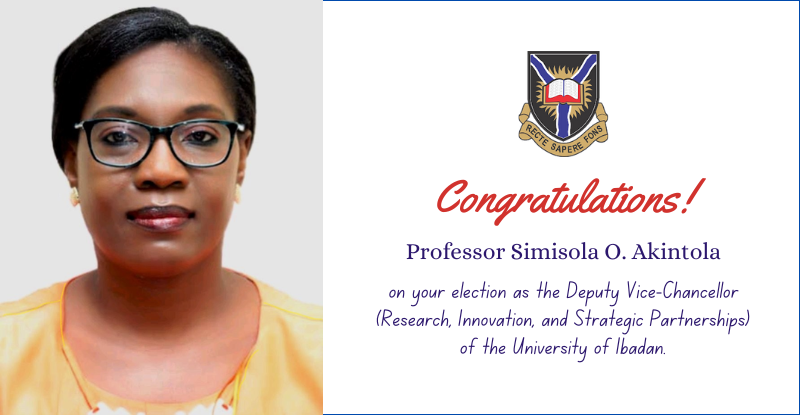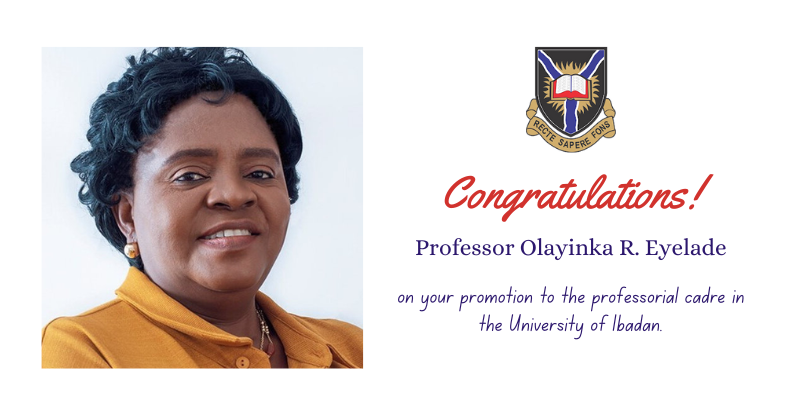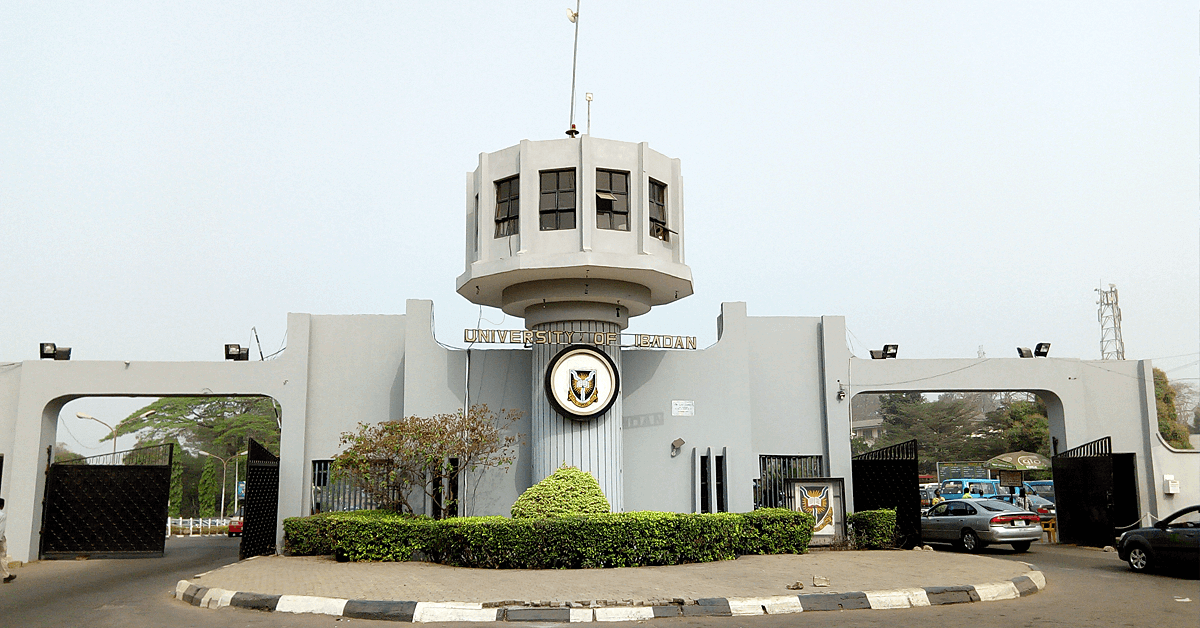Bioethics Seminar Meeting – Use of Community Guide and Autonomous Decision Making In International Health Research
Faculty members and students of the West African Bioethics Training Program (WAB) as well as other students and staffs of the University of Ibadan gathered on the 31st of January 2014 between 3 and 4 p.m. for the Bioethics Seminar in the post-graduate room of the Department Sociology, Faculty of the Social Sciences. In attendance were six WAB faculty members and 32 others representing various departments within the Faculty of the Social Sciences. Prof. A.S. Jegede, spoke on the topic ‘Use of Community Guide and Autonomous Decision Making in International Health Research’.
Prof. A.S. Jegede during his lecture
In his lecture, he gave a brief overview of the importance of informed consent as it exists to protect research participant, researcher, host institution and sponsors of research from harm. According to him, it is difficult to realise the ‘good intentions’ of informed consent, sometimes, due to lack of the adequate basic knowledge of the participant about the research. He was of the view that researchers could face a dilemma in deciding how much information to be made available to participants in different socio-cultural settings leading to the temptation for some researcher to want to waive informed consent. Attempt to resolve these issues necessitate the use of community guides (CG).
Prof. Jegede argued that community-based participatory research (CGPR) is an applied collaborative approach that enables communities to participate actively in research whereby they partner with researchers to combine knowledge and action for social change in order to improve community health and reduce health disparities. He highlighted the general assumptions about active and meaning of engagement of CG as; maximization of community benefits, minimization of a range of potential harms to individuals. For him, despite the fact that studies have examined this phenomenon worldwide, much still needs to be understood about how it affects informed consent process in Africa in general. Hence, he set out to investigate the effect of the use of CG on autonomous decision making in international health research.
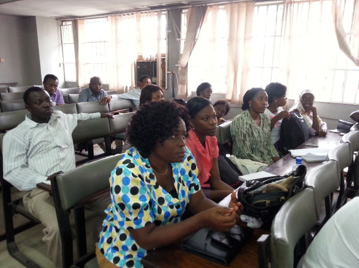
Cross section of participants
To answer the research question, Prof. Jegede presented the data from a study conducted in a community in selected rural communities in Akinyele Local Government Area (LGA) of Oyo State, one of the eleven LGAs that make up Ibadan metropolis, to investigate the role of CG in autonomous decision making in international health research. He justified the choice of the study area by saying that the LGA hosts well established research institutions like the International Institute for Training in Agriculture (IITA) and the Nigeria Institute for Social and Economic Research (NISER) while the University of Ibadan is located very close to the area. As a result of this, the LGA has played host to many international research. According to him, 20 in-depth interviews were conducted with literate and illiterate young and elderly, male and female residents as well as religious leaders who have ever participated in health research in the study area. The key findings of the study are that;
- majority were aware of health research conducted in the community
- they were of the view that CG is a good practice as it ensures security, preserve tradition and promote trust and facilitates translation
- despite its usefulness, the respondents were of the view that the ethical challenges arising from the use of CG include but not limited to issues of coercion, misinterpretation, equity, confidentiality, stigma, exploitation, argument surrounding masculinity/feminism
The study concluded that though there are benefits with regards to use of CG, it can also complicate ethical decision making, especially in multicultural environments. Hence, to achieve the best from its use, Research Ethics Committees (REC) should develop Standard Operating Procedure (SOP) for engaging CG effectively. Also, lay person’s level of training should be provided by RECs for CGs and traditional leaders in their catchment areas.
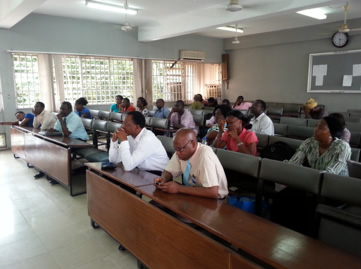
Cross section of participants
Following his presentation, there was a debate among the audience whether the use of CG is worthwhile or not. From the comments by audience, two schools of thought emerged. There were those who felt that the use of CG should be discouraged due to what they considered as ethical challenges it poses to informed consent process. The other school of thought was of the view that in cultural environment like the study area, the use of CG is still relevant but that the process of their engagement should be modified. In his contribution, Dr. Akintayo of the Faculty of Law suggested that just like tourist guides, CGs can be licensed in order to facilitate the process of training them as advocated by the presenter. Because of the interest the topic generated and the quality of debate among the audience, it was concluded that another session will be necessary to harvest more robust debate on the subject.
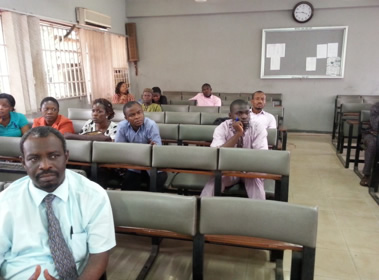
Cross section of participants

